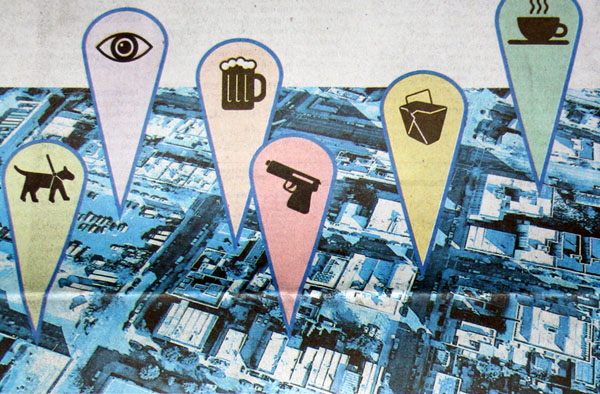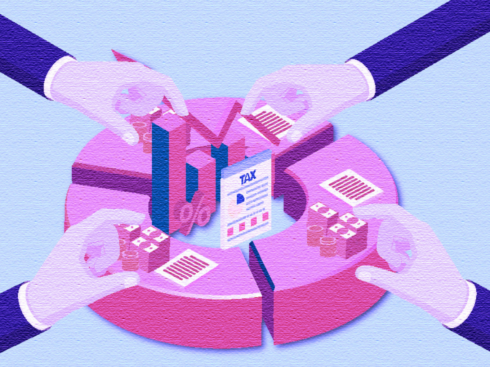Hyperlocal marketplaces have been making a lot of buzz these days. Just last week, two hyperlocal delivery ventures raised massive funding. On one side, Zopper, a hyperlocal mobile delivery marketplace raised $20Mn in series B round funding from Tiger Global and Nirvana and yesterday, on the other side, Chandigarh based Jugnoo raised $5 Mn in Series A funding from Snow Leopard and Paytm.
Increase in the number of startups in this particular space and the growing interest of investors, highlights the amount of potential in Hyperlocal space which has now made delivery of everything from groceries to mobile phones to medicines, directly from the stores near your home easy, along with an upper hand over ecommerce in terms of faster delivery, less shipping costs and trust of the consumer.
In recent times, apart from new startups, giants like Amazon too have entered this space, making it look much more promising.
The demand in the hyperlocal delivery which is already skyrocketing with consumers becoming more aware and pro-technology, people now feel much more comfortable by getting everything with a click of a button. “Running an errand has been redefined by hyperlocal and on-demand ventures. Consumers want to buy groceries, stock up for the month etc. in a more intelligent fashion than the old-school way. Eventually, everything will become on-demand in a literal sense. Getting one’s medical reports, household chores or laundry and cleaning services etc, will be executed the hyperlocal way,” says Samar of Jugnoo.
He further adds that the way things are moving, it won’t be long before ecommerce is replaced by hyperlocal. The options are way more and the turnaround time is way less in hyperlocal. But on some level, a collaboration could also be explored between the two models.
Experts are of the view that Hyperlocal delivery will grow strong in the areas where the product demand is immediate such as pharmacy, grocery and gifts to some extent.
We went deeper into the space and tried understanding the models of a few hyperlocal delivery ventures that are trying to make it big.
Jugnoo
Jugnoo operates in the hyperlocal market through its two verticals- Jugnoo Fatafat and Jugnoo Meals. It uses auto rickshaws as a logistics engine for delivery of products (Jugnoo Fatafat) and affordable home like meals (Jugnoo Meals).
Based in: Chandigarh
Founded in: November 2014
Founder: Samar Singla and Chinmay Aggarwal
Funding: $1 Mn in seed round funding from Rakesh Mathur (Junglee, Flywheel), Vikas Taneja (previous investments in Rapportive, PubNub, etc.) in April,2015. Followed by today’s Series A funding of $5Mn from Snow Leopard and Paytm.
Product Categories: Meals and order anything from anywhere for free feature.
Average delivery time: Between 20 to 40 minutes which also includes the preparation time by the store from which order has to be picked up.
Average ticket size: INR 450
Ratio of new Vs existing customers: 50-50
Company’s Approach: Custom, depending on the user’s choice.
Who takes care of delivery: Own team but are open to explore outside as well. Its app and analytics allows user to monitor the deliveries.
Number of operational cities: 5 (Chandigarh, Ludhiana, Gurgaon(launched recently), Amritsar and Jaipur )
Zopper
Zopper is a hyper local mobile marketplace. What differentiates Zopper from other players is this that it is the only player in the consumer durable segment. It offer real time price discovery to consumers to help consumers choose the lowest available price in the nearby stores.
Based: New Delhi
Founded in: October, 2011
Founders: Surjendu Kulia and Neeraj Jain.
Funding: In October 2011, company received seed funding from Blume Ventures and Ventureast; Pre-Series A round came from Nirvana Ventures and Blume Ventures in January 2013; In June 2014, Zopper raised $5 Mn from Tiger Global and Nirvana Ventures in the Series-A round. Earlier this month, it raised $20Mn in a Series B round funding from Tiger Global and Nirvana.
Product Categories: Electronic items.
Average Ticket Size: around INR 10,000
Average Delivery Time: Under 24 Hours
Company’s Approach: Store-first
Who takes care of delivery: merchants deliver the products and the monitoring is done by Zopper through consumer ratings.
Number of operational cities: 5 (Delhi, Mumbai, Bengaluru, Jaipur and Chandigarh)
Zopnow
ZopNow is a hyperlocal grocery delivery startup that delivers grocery item in less than 3 hours or at a predefined time specified by the customer.
Based in: Bangalore
Founded in: September,2011
Founder: Mukesh Singh and Bal Krishn Birla (who is no longer part of the company)
Funding: Company had raised $10 Mn in a funding round led by San Francisco-based Dragoneer Investment Group, along with its existing investors including Accel Partners, Qualcomm Ventures and Times Internet also participating in the round. This round valued the company at over $50 Mn.
Product Categories: Grocery
Average ticket size: INR 1,100
Ratio of new Vs existing customers: 15% – new customers and 85% – recurring.
Average delivery time: 45 minutes to three hours
Company’s Approach: Product-first
Who takes care of delivery: They have their own delivery team
Number of operational cities: 5 (Bangalore, Mumbai, Pune, Hyderabad and Gurgaon)
PepperTap
PepperTap is a mobile-first hyperlocal grocery delivery services startup. It offers more than 15,000 SKUs across categories including Staples, food & dairy products, household items, fresh fruits & vegetables etc.
Based: Gurgaon
Founded in: November,2014
Founders: Navneet Singh and Milind Sharma
Funding: It had raised undisclosed amount of seed funding from Sequoia in February,2015. Followed by Series A funding of $10 Mn from SAIF Partners and Sequoia Capital in April,2015.
Product Categories: Staples, food & dairy products, household items, Grocery
Average Ticket Size: Average ticket size is close to INR 700/-.
Average Delivery Time: A maximum 2 hour delivery. However customers have a choice of selecting their own delivery slots as well.
Ratio of new v/s existing companies: About 60% of the orders received week on week are from new customers.
Company’s Approach: Product-first
Who takes care of delivery: Own delivery team
Number of operational cities: 4 (Gurgaon, Delhi, Noida and Pune)
Grofers
Grofers is an on-demand delivery startup that delivers items from nearby stores of the cities to the customer.
Based: Gurgaon
Founded in: 2013
Founders: Albinder Dhindsa and Saurabh Kumar
Funding: It had raised over $35 Mn in a new round of funding led by Tiger Global and Sequoia Capital. In February, Grofers had raised $10 Mn from Tiger Global and Sequoia Capital. The company’s present valuation to $115 Mn.
Product Categories: Various categories such as grocery, bakery, fruits & vegetables, beverages, personal care products, baby care products, pet products and much more.
Average Ticket Size: INR 500-800
Average Delivery Time: 70-90 minutes
Ratio of new v/s existing companies: A lot of users are recurring ones.
Company’s Approach: Store-first
Who takes care of delivery: Grofer has its own delivery team
Number of operational cities: 9 (Ahmedabad, Bangalore, Chennai, Delhi/NCR, Hyderabad, Jaipur, Lucknow, Mumbai and Pune)
Survival of the Fittest
With the presence of number of players in this particular segment, the survival depends on the business fundamentals and execution of the companies. “I do have my doubts about grocery delivery startups, as the delivery costs of this model are higher than the margins made. Also, the model has already been tried worldwide and no one has yet succeeded. Other than that, I think it solely depends on the efficiency in execution of the startups,” said Neeraj Jain of Zopper.
Where as Navneet of PepperTap is of the view that the companies that offer better solutions at a lower cost would certainly have an edge over others in the sector and startups have the potential to do so, as they can adapt to newer technologies and solutions to address the need
While Mukesh of ZopNow says that instead of having a pan-india survival, hyperlocal ventures will grow more locality specific, some will prosper in one locality and the other will take over in another area, based on the nature and demands of goods in the locality. Also, not all players are going to survive, as the economic margins in hyperlocal market are tough to meet. So, only the companies which can optimise their operations and meet the economic margins will survive. “Those who crack the right recipe for this are here for long,” said Samar.
Many believe that the survival depends on money raised, execution and how well operated the companies are from the very initial days.
Challenges & Expansion
Initially when hyperlocal delivery as a concept started taking shape, consumers were not ready to accept that someone is going to deliver good quality grocery or other products to your home, it takes time to build trust in the consumer which was one of the major challenge for Grofers when it started its operation. Adding on, poor quality of systems and data in the target retail stores, regulated MRP (maximum retail price) which limits margins, and technophobic delivery staff are among the challenges PepperTap faced, tells Navneet.
Once the system is in place, the next biggest challenge arises for everyone in the Hyperlocal space, is the reliable workforce. “From my own experiences with ZopNow, consumer demand is already there but to fulfill these demands one needs adequate number of delivery persons to meet the ends in the process, thus irreliable workforce is one of the major issues in this space,” Mukesh added.
While apart from the above mentioned challenges, maintaining the quality of product sent by merchants and obviously maintaining demand and supply in the locality is yet another challenge faced by the hyperlocal delivery ventures. “This is not at all a problem in ecommerce or Pan India model of commerce, where any demand over the country can be met by a single supplying unit. In hyperlocal the supply has to be present in that locality or city to serve the purpose of fast deliveries and post sales support by the merchant, which is quite tough to be met in every locality,” says Neeraj.
Apart from this, startups also face challenges in the geographical expansion, adding on challenges that one faces are different in every city and this all depends on the dynamics of the city, for them. For Instance, for Grofers, Mumbai expansion was easy, people are used to getting services delivered to their homes. Whereas getting into cities like Ahmedabad and Lucknow has been tough, people are resilient to the concept, initially.
The on-going trends in the hyperlocal local delivery space force us to think of following questions:
- Will hyperlocal delivery as a segment takeover ecommerce?
- Will ecommerce and hyperlocal models co-exist?
- What will be next? Is there way for a new breed of aggregation startups in hyperlocal delivery space?
Stay tuned for comparison between startup working in the hyperlocal food delivery space!
































